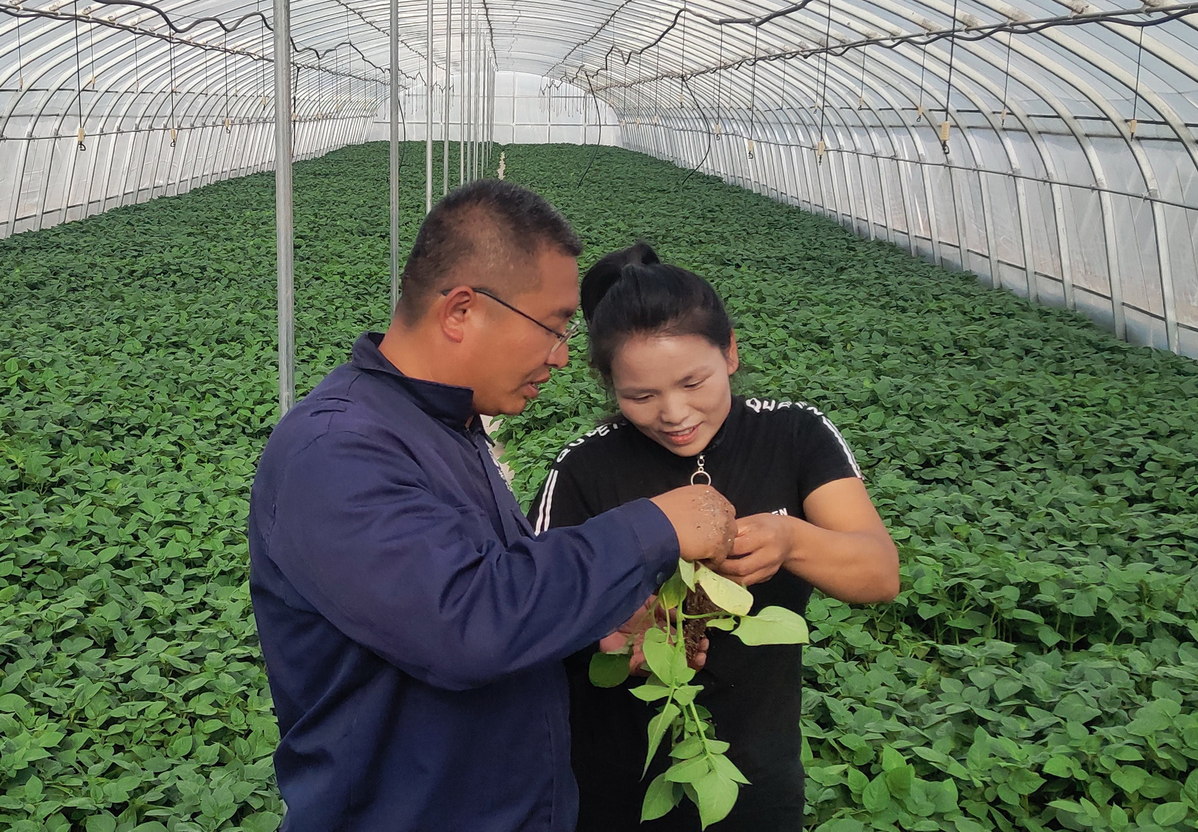'Potato city' creates harvest for poverty relief


Ulaanqab, a city in the Inner Mongolia autonomous region, is using its sprawling potato industry to fight poverty and pave the way to prosperity.
Dubbed the "potato city" of China, where raising potatoes contributes to half of local farmers' income, Ulaanqab is shipping 1 million metric tons of seed potatoes overseas, accounting for 7 percent of its domestic sales, local authorities said.
More than 70 percent of the potatoes sold in the Beijing market come from Ulaanqab.
To tap into that strength, the local government has fostered poverty relief programs in the sector.
Among them was a program in the city's Lamaban village, where last year a local cooperative signed up Beijing Xisen Sanhe Potato Co to centralize production of seed potatoes.
The company invested 4.5 million yuan ($645,000) last year, leasing 16 hectares of idled farmland from villagers and building 107 greenhouses. The cooperative is responsible for collecting products from farmers and selling them to customers.
The program further expanded this year, with the injection of 45 million yuan of poverty relief funding by local authorities that allowed the potato retailer to lease another 33 hectares of farmland and build a breeding center and more greenhouses.
The program benefits locals in several ways. It generates rural income in the form of rent, which is about 4,500 yuan per hectare. The company estimated that the rent alone raised average family income by at least 1,000 yuan last year.
In addition, farmers liberated from farmwork can seek better paying jobs in nearby cities, or in the manufacturing hubs dotting the affluent coastline if they are skilled enough. The newly erected potato greenhouses need caretakers as well.
When completed, the project is expected to employ more than 40 impoverished farmers, helping bring in annual income of 20,000 yuan each, the company estimated.
One of the project's earliest beneficiaries was Yang Hongjuan.
Yang and her husband used to do part-time work at nearby construction sites to make ends meet for her family of five. But despite their best efforts, the income was never enough, and they slid deeper into financial distress.
Last year, local government and the company offered to train Yang and her fellow farmers in potato breeding. She secured a 20,000 yuan interest-free loan as part of the local poverty relief package and contracted two greenhouses, emboldened by the promise that one such facility was meant to bring in a net income of up to 30,000 yuan annually.
"I earned 62,000 yuan last year," she said.
The success at Lamaban village is an example of how local authorities innovate to boost rural income ahead of the centenary of the Communist Party of China in 2021. China has pledged to eradicate absolute poverty domestically by the end of this year as a bottom-line requirement for complete the building of a "moderately prosperous society in all aspects", known as xiaokang shehui.
- China's unyielding fight against corruption
- Snow sculptures in China's 'Ice City'
- China accelerates urban renewal efforts to create livable, resilient cities
- Ice 'Terracotta Warriors' to debut at Harbin Ice-Snow World
- Major airport in Guangzhou sees record passenger throughput
- China launches new project to support young scientists





































